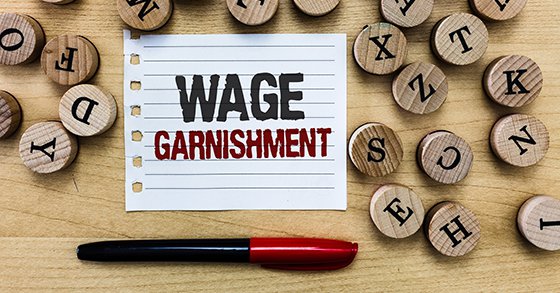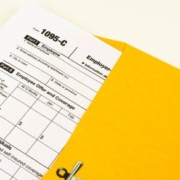Wage Garnishment: Protections and Limits Every Employer Should Know
- Learn about the different types of garnishments that exist.
- Discover how the Consumer Credit Protection Act (CCPA) protects workers who's wages are garnished.
- Find out how the CCPA defines "earnings."
- Discover how employers can protect themselves in what could be a contentious situation.
What do you know about wage garnishment? Are you faced with the imminent prospect of having to garnish a worker's wages and wondering how it all works? Fiducial can help. In this blog, you'll learn about the different types of garnishments and how the Consumer Credit Protection Act limits and controls garnishment.
What to know about wage garnishment
The prospect of having to garnish an employee’s wages isn’t a pleasant thought, yet it’s a situation that many employers face. As with any onerous task, the more prepared you are for wage garnishment, the better. Let Fiducial walk you through some basic facts about the process.
Various types of wage garnishment
The word “garnishment” is defined as any legal or equitable procedure through which an individual’s earnings are required, under a court order, to be withheld for payment of a debt. Wage garnishments may include:
- Creditor garnishments,
- Child support,
- Garnishments to repay non-tax debts owed to the federal government,
- Student loan garnishments, and
- Tax levies.
Wage garnishment for child support usually takes priority over the other types.
There are both federal and state laws covering wage garnishment. For those issued at the state level, the law that’s most beneficial to the employee is generally followed. However, for garnishments issued at the federal level, state law typically takes a back seat to federal law. (Voluntary wage assignments aren’t considered garnishments and, therefore, fall outside the scope of federal law.)

How does the Consumer Credit Protection Act protect workers?
Title III of the Consumer Credit Protection Act (CCPA) is the federal law that controls wage garnishment. The law limits the amount of an employee’s disposable earnings that may be garnished in any one week. The CCPA also protects employees from being fired or let go because of garnishment for any one form of indebtedness. The law’s purview includes city, county and state employees’ earnings — unless a state law exempts them from garnishment.
The CCPA defines “earnings’’ as compensation for personal services. This includes wages, salaries, commissions, bonuses or other compensation (including periodic payments from a pension or retirement program, or payments from an employment-based disability payment program).
For tipped employees, earnings also include cash wages paid directly by the employer and the amount of the tip credit claimed (if any) by the employer. Tips received in excess of the tip credit amount, or in excess of cash wages (if no tip credit is claimed or allowed), aren’t earnings under the CCPA. Lump sum payments may be included in earnings for wage garnishment purposes. Employees should know payments that don’t meet the definition of earnings under the CCPA aren’t protected by the law’s deduction limitations.
Important: As mentioned, the CCPA’s restrictions on wage garnishment are based on an employee’s disposable earnings. These are the portion of earnings remaining after deductions required by law have been made (not to be confused with “net earnings,” which is the amount left after all deductions have been made). Examples of these deductions include withholding for federal and state income tax, Social Security tax, state unemployment and disability taxes, and deductions required by state employees’ retirement systems.
Wage garnishment can be a contentious undertaking
As you might well imagine, having to garnish an employee’s wages is an often-contentious undertaking fraught with legal risk. Consult an attorney before doing so. For more information about wage garnishment, call Fiducial at 1-866-FIDUCIAL or make an appointment at one of our office locations. Ready to book an appointment now? Click here. Know someone who might need our services? We love referrals!









